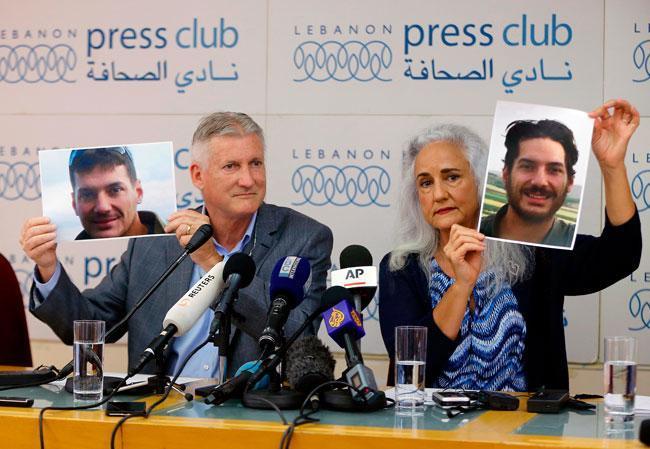Red Cross says it’s flooded by missing requests for Syrians
UNITED NATIONS - The Associated Press

The International Committee of the Red Cross has been “flooded” with about 13,000 requests in the last six months from Syrians looking for missing family members, its president said on April 25.
Before then, Peter Maurer told a small group of journalists, the organization had gotten only “requests in the hundreds.” In the first three or four years of the conflict, it received between 30 and 50 tracing requests a month, he said.
Maurer said inquiries on the missing have come from all areas of Syria, neighboring countries, Europe, the United States and the rest of the world.
With the conflict now in its eighth year, the Red Cross chief said the surge in requests is probably related to Syrians returning to “precariously stable” places in the country where there is no active combat and worrying about family members. He said the organization has also been “slightly more pro-active” on the issue of missing Syrians.
Maurer said the Red Cross has had very limited success so far in reuniting family members, with numbers “in the tens to fifties rather than in the thousands.”
“So we recognize and we want to beef up our capacities to look in much more details to these requests,” he said.
Maurer said some of the missing may have died, some may be in prison and some may have fled.
The Red Cross has access to prisons, but in Syria it can only go into official detention facilities - state-run prisons, he said.
“We don’t have access to security detention facilities of the army and the secret services,” Maurer said. “Neither do we have access at the present moment to detention facilities of the opposition.”
He said the matter of missing Syrians also links to the issue of foreigners who went to fight in Syria and Iraq with extremist groups, including the Islamic State and al-Qaida. Maurer said the Red Cross has been able to visit opposition fighters held by Kurdish forces in northern Syria and opposition fighters in Iraq as well as their families who are being held in camps.
The organization also works with governments and non-government groups on ensuring international standards in identifying bodies, he said.
“Today in Yemen and Syria and Iraq, all the authorities, government and non-government, are increasingly exposed to pressures from families to bring back their people, or to know about their respective family members,” Maurer said.
















